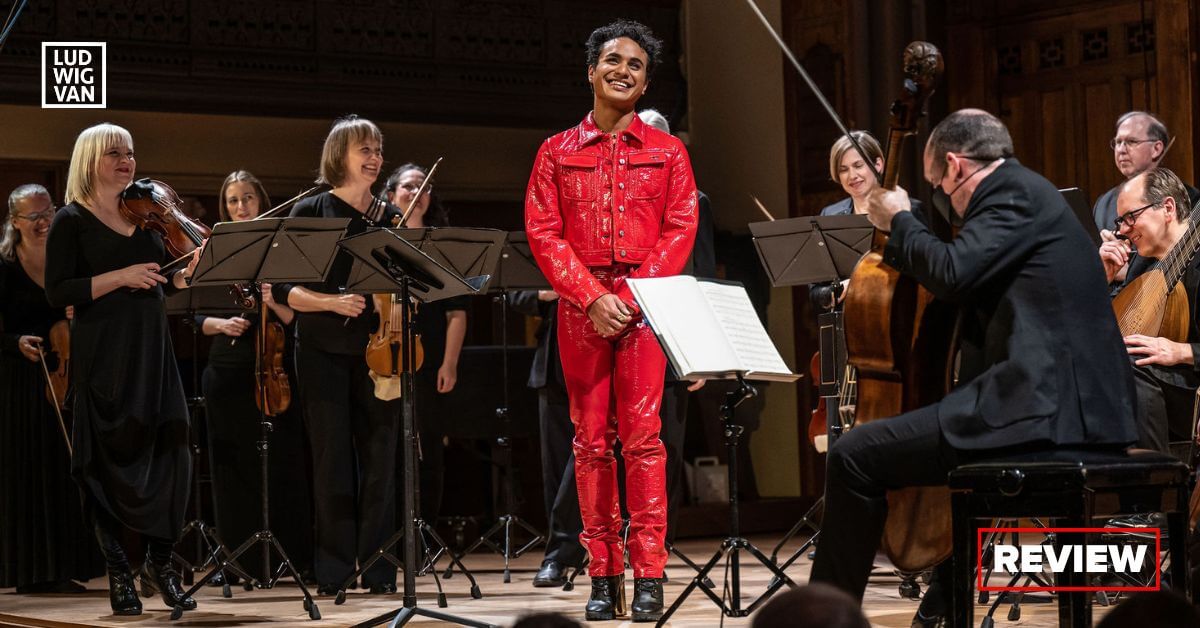
Samuel Mariño, male soprano, with Tafelmusik, Saturday afternoon at Jeanne Lamon Hall. Arias by Handel, Vivaldi, Alessandro Scarlatti and Johann Adoph Hasse; instrumental selections by Handel, Vivaldi and Johann Georg Pisendel.
“Higher love” was the gently punning title of the program Tafelmusik presented over the weekend, a reference to the elevated sentiments typical of texts set by baroque composers as well as the unusual vocal attributes of Samuel Mariño, who was making his Canadian debut.
This 29-year-old Venezuelan calls himself a male soprano (rather than an alto or countertenor) because his voice never fully broke. Judging by what was heard Saturday afternoon in the second of two concerts in Jeanne Lamon Hall, his range is high even by coloratura standards. Not that altitude is all he offers. Both his lyric instincts and his rat-a-tat technique are secure, to say nothing of his sincere emotional investment in the musical material.
What stands out as individual is his tone. Close your eyes and you think you are hearing…well, not a soprano. There is something boyish, big-boyish, about his voice. Bright and pure are adjectives that come to mind, although neither quite reflects its arresting quality.
That sound was a suitable platform for both virtuosity and pathos in Handel’s early motet Saeviat tellus inter rigores, which includes a good deal of give-and-take with the orchestra (numbering 16, one oboe having called in sick). The vitality was remarkable, the variety less so. What Mariño gains in virtuosity he yields somewhat to his falsettist competitors in gradations of light and shade.
Still, there was nothing but pleasure to be had from an alternative version of the Handel tune best known as “Lascia ch’io pianga” and, after intermission, flowing accounts of arias from Il Giustino (Vivaldi) and Il Sedecia, re di Gerusalemme (Alessando Scarlatti) as well as power-packed selections from Marc’Antonio e Cleopatra (Johann Adoph Hasse) and Atalanta (Handel). Not a note seemed ill-judged, and the accompaniment, cued from the concertmaster’s chair by Julia Wedman, was colourful.
The orchestra offered some items on its own, including Handel’s Concerto Grosso Op. 6 No. 1, crisply if methodically done. We also heard Vivaldi’s Cello Concerto in E Minor RV409 with Keiran Campbell in fine form and bassoonist Dominic Teresi as a notable co-soloist. Campbell’s fellow cellist Michael Unterman furnished an eloquent obbligato in the Handel motet.
Now for an element that does not normally merit much critical analysis: wardrobe. Mariño wore three costumes, all flamboyant. Like Liberace, you might say, only Liberace never wore heels. The crowd, made substantially of seniors, was delighted by the fashion show, and responded positively to an affectionate stage deportment marked by many blown kisses. All good fun. But rest assured that the applause was mainly for the music.
Get the daily arts news straight to your inbox.